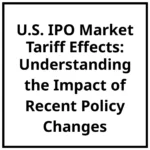In a recent CNN interview, Jim Cramer delivered a scathing Trump tariffs analysis, deeming the implementation ‘bush league’ and reflecting broader concerns in the business community.

In a candid and critical appearance on CNN’s “OutFront” with host Erin Burnett, CNBC’s Jim Cramer expressed deep disappointment with the implementation of President Donald Trump’s tariffs, which he described as “bush league.” This decisive rebuke highlights not just Cramer’s personal disillusionment but also underscores broader concerns within the business community regarding the tariffs’ impact on global trade and economic stability. As the international community grapples with rising protectionism, Cramer’s remarks illuminate the tension between proponents of fair trade and critics of protectionist policies.
Read Also – 👉👉Delta SkyMiles Reserve Card Benefits: 7 Reasons Why It’s a Top Choice for Frequent Flyers👈👈
Background and Context
Understanding Trump’s Tariff Strategy
Donald Trump, during his presidency, championed a “fair trade” agenda, advocating for tariffs as a tool to correct what he saw as imbalances in international trade. This approach aimed to adjust the terms under which the U.S. engages in global commerce, focusing on reciprocal tariffs that would mirror what other nations impose on American goods. However, this strategy has faced significant criticism for its potential to escalate trade wars, disrupt supply chains, and burden consumers with increased costs.
Cramer’s Perspective on Trade
Jim Cramer, known for his influential financial commentary and show “Mad Money” on CNBC, is not an advocate for free trade. Instead, he supports a balanced approach where tariffs are used strategically to level the playing field for American businesses. His recent criticism of the tariffs’ implementation suggests a deep-seated concern about how these policies have been executed and their implications for the economy.
Key Developments
Cramer’s Main Criticisms
- Cramer’s disappointment with the approach, stating, “I’m not a free trader, I’m a fair trader.”
- He noted that tariffs should be symmetrical, mirroring those applied by other countries, but the current implementation lacks logic.
- He called out Trump’s advisors, stating that they failed to deliver reciprocal tariffs as promised.
Impact Analysis
Economic Ramifications of Tariffs
The tariffs have significant implications across various sectors. For consumers, the widespread application of tariffs could lead to increased costs of goods, impacting household budgets. Not only that, but retaliatory measures from other countries might reduce American exports, affecting employment in industries that rely heavily on international sales.
Market and Political Consequences
The uncertainty surrounding tariffs has contributed to stock market volatility, with investors remaining wary of the potential long-term adverse effects of trade tensions on global economic growth. Additionally, the tariffs have strained relationships with key trading partners, potentially altering the geopolitical landscape regarding trade alliances and cooperation.
Controversies and Differing Perspectives
Supporters vs. Critics of Tariffs
- Supporters argue that tariffs are essential to combat unfair trade practices and protect American industries.
- Critics, including Cramer, emphasize that the execution of these policies has been clumsy and lacks strategic coherence.
Conclusion
Cramer’s critique of Trump’s tariffs reflects broader concerns within the business community about the effectiveness and sustainability of current U.S. trade policies. As the world moves towards a potentially more protectionist era, the success of these policies will depend on their ability to correct trade imbalances without destabilizing the global economy. Cramer’s remarks highlight the need for a thoughtful and strategic approach to trade policy, one that balances protectionism with economic pragmatism. Whether these concerns lead to adjustments in policy or a continued path of protectionism remains to be seen, but they undoubtedly underscore the complexity and challenges of navigating international trade in the current geopolitical climate.
FAQs
What did Jim Cramer mean by calling Trump’s tariffs ‘bush league’?
Jim Cramer’s use of the term ‘bush league’ to describe Trump’s tariffs suggests that he views the implementation as amateurish and poorly planned. Cramer is emphasizing that the tariffs lack the strategic and thoughtful approach necessary to effectively address trade imbalances. In his critique, he expresses disappointment that the tariffs have not been applied in a fair manner, which he believes undermines their intended purpose.
Why does Cramer feel that tariffs should be implemented symmetrically?
Cramer argues that tariffs should match those imposed by other nations on U.S. exports to ensure fairness in international trade. He believes that symmetric tariffs would create a level playing field for American businesses, enabling them to compete more effectively in global markets. This kind of balanced approach, according to Cramer, would help address trade imbalances without excessively burdening consumers or provoking trade conflicts.
Related Videos
Read Also –
The views expressed in this article reflect Jim Cramer’s personal opinions and do not necessarily represent the views of CNBC or its affiliates.
Read Also –
Hey! I hope you enjoyed reading this! If you did, could you do me a small favor and hit the like button? It would mean a lot to me and help me reach more people. Thank you so much! Got any thoughts on this post? Drop them in the comments below!
How many stars would you give for my effort?





